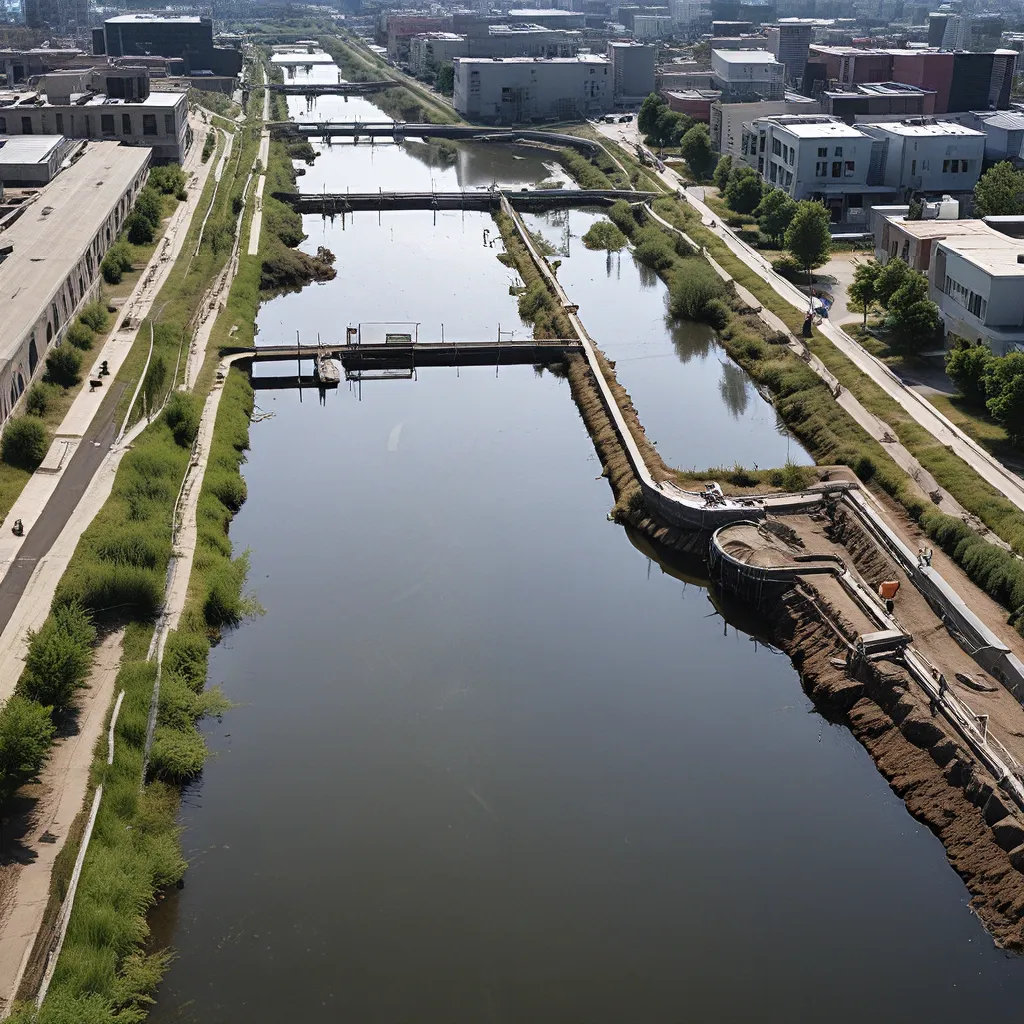
As someone deeply passionate about environmental sustainability and urban planning, I’ve always been fascinated by the intricate relationship between wastewater treatment and the development of livable cities. It’s a topic that’s near and dear to my heart, and I’m thrilled to have the opportunity to explore it in depth with you today.
Let me start by painting a picture of the challenge we face. Our world is rapidly urbanizing, with the United Nations predicting that by 2030, around 60% of the global population will live in cities. This urban boom brings with it a host of complex issues, not the least of which is the management of our wastewater. You see, as more and more people flock to urban centers, the demand for clean water and efficient waste disposal skyrockets.
And that’s where the crucial link between wastewater treatment and sustainable urban development comes into play. Effective wastewater management is not just an environmental necessity – it’s a vital component of building the livable, resilient cities of the future. By aligning these two crucial elements, we can pave the way for a brighter, more sustainable tomorrow.
The Pressing Need for Integrated Wastewater Solutions
One of the most pressing challenges we face is the growing proportion of urban populations living in slums, informal settlements, or inadequate housing. These areas often lack access to basic services like clean water and proper sanitation, leading to a host of public health issues. In fact, the United Nations has set a target to ensure access for all to adequate, safe, and affordable housing and basic services by 2030.
But achieving this goal requires a multifaceted approach – and wastewater treatment is a crucial piece of the puzzle. Poorly managed wastewater can contaminate local water sources, breed disease, and exacerbate the living conditions in these vulnerable communities. That’s why it’s so important for cities to invest in robust, holistic wastewater treatment solutions that can keep up with the demands of rapid urbanization.
The Role of Wastewater Treatment in Sustainable Urban Development
Now, you might be wondering, “How exactly does wastewater treatment fit into the bigger picture of sustainable urban development?” It’s a fair question, and one that I’m eager to explore.
At its core, sustainable urban development is all about creating cities that are economically, socially, and environmentally resilient. It’s about building communities that can withstand the challenges of the future, from climate change to population growth. And wastewater treatment plays a crucial role in this endeavor.
You see, properly treating and managing wastewater can have a direct impact on the livability and sustainability of urban areas. By ensuring that wastewater is safely collected, treated, and either reused or responsibly discharged, we can prevent the contamination of local water sources, reduce the spread of waterborne diseases, and even create new opportunities for water reuse and resource recovery.
This, in turn, can have a ripple effect on other aspects of urban sustainability. For example, by securing a reliable supply of clean water, cities can promote the development of green spaces, improve sanitation, and enhance the overall quality of life for residents. And when communities have access to these basic services, it can help to reduce the prevalence of informal settlements and improve overall housing conditions.
The Rise of Integrated Wastewater Management Solutions
But the story doesn’t end there. In recent years, we’ve seen a exciting shift in the way we approach wastewater treatment, with the emergence of integrated, holistic management solutions. These cutting-edge approaches go beyond simply treating and disposing of wastewater – they seek to maximize the recovery and reuse of valuable resources within the wastewater stream.
One such example is the growing trend of water reclamation and reuse. Rather than simply discharging treated wastewater back into the environment, some cities are now using advanced treatment technologies to purify it to a level that allows for safe reuse in applications like irrigation, industrial processes, and even potable water supply. This not only reduces the strain on freshwater resources, but it also creates new opportunities for water conservation and sustainability.
But the benefits of integrated wastewater management don’t stop there. By recovering and repurposing valuable resources like nutrients, energy, and even water itself, cities can reduce their environmental footprint, generate new revenue streams, and support the development of a more circular economy. It’s a win-win-win scenario that’s transforming the way we think about wastewater treatment.
The Future of Wastewater and Sustainable Cities
As I look to the future, I’m filled with a sense of cautious optimism. The challenges we face in aligning wastewater treatment and sustainable urban development are significant, but the potential rewards are immense. By investing in innovative, integrated solutions, we can not only improve the livability of our cities, but also contribute to the broader goals of environmental sustainability and resource stewardship.
Of course, this is an area of active research and ongoing debate. Some experts believe that the integration of wastewater treatment and urban development is critical for the future, while others suggest that more evidence is needed to fully understand the complex relationships at play. Personally, I’m inclined to agree with the former view, but I also recognize the importance of maintaining an open and critical mindset as new insights emerge.
One thing is certain, however: the need for action is urgent. As our cities continue to grow and evolve, the pressure on our water systems will only intensify. It’s up to us, as concerned citizens, policymakers, and industry leaders, to forge a path forward that prioritizes both environmental stewardship and the creation of livable, equitable urban communities.
So, what can you do to contribute to this vital effort? I encourage you to stay informed, engage with your local government and utility providers, and explore ways to support the development of sustainable wastewater solutions in your own community. After all, the future of our cities – and indeed, our planet – may very well depend on it.